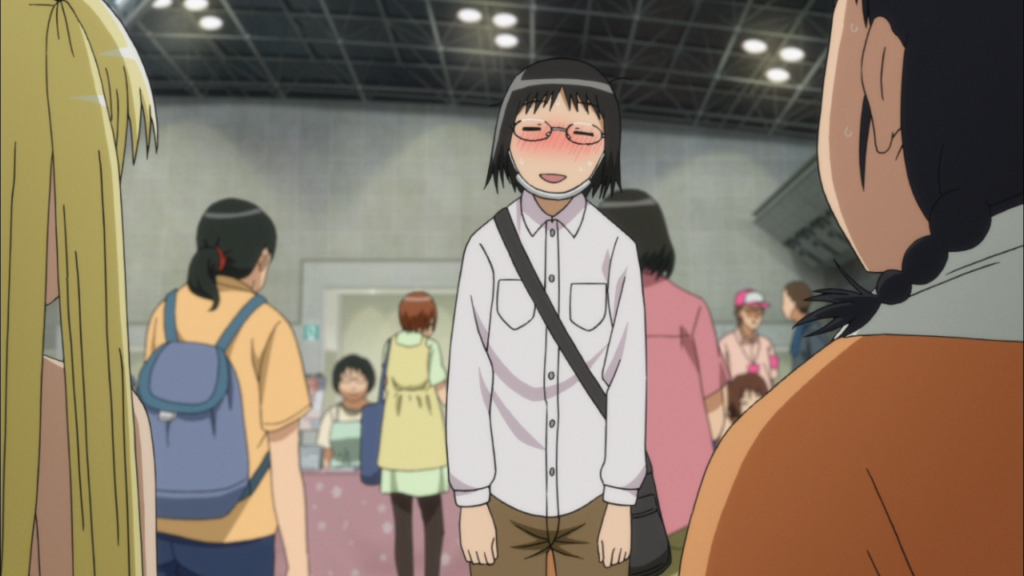In part 1 (On Iyashikei), we discussed the social impact lockdown has had on conventions and convention culture.
In that article, I mentioned that some cons were criticized early on for cancelling “at the last minute.”

Conventions enter into up contracts with the venues that host them. Often, a part of that contract penalizes the convention for cancelling without good reason. It makes sense: The venue is committing to the event, so the event must commit to the venue. If the event cancels, the event has to pay money, because the venue was counting on the event for revenue.
If, say, a government mandate were to render the event illegal to hold, however, the con is off the hook. This is what happened with many cons that cancelled “at the last minute.”
This is just one way in which the lockdown measures have hit the convention scene financially. No doubt there will be a lot of lost money in the con market by 2021.
Money Conventions Lose
It’s tempting to argue that conventions could move online. That doesn’t, however, solve the problem. To understand, we first have to understand how conventions make money.
- Convention badge fees
- Dealer room/artist alley table fees
- Charging for certain events at the convention
- Selling merchandise
- Sponsorships
- Selling ad space (In program books, etc.)
Online conventions eliminate almost all of these revenue streams. Many online conventions manifest as a series of panels and workshops, and maybe space for online vendors and artists to show what they have for sale. It’s very difficult to justify charging people for what amounts to a Twitch stream or a series of Youtube videos.
Not only that, but online conventions don’t bring in nearly as many people. Despite being easier to attend, they’re less popular. Not to mention, the methodology hasn’t been figured out, even by the major events.
This online con uses Youtube livestreams.
That one uses Twitch and Discord.
That other one over there has its own app.
Regardless of method, however, revenue potential is low. And that’s only to speak of the events that chose to go online. Many cancelled outright. And while that’s a praise-worthy move to many, it remains to be seen how many conventions survive into 2021 and 2022.
Money Lost From No Conventions
Conventions themselves aren’t the only stakeholders in the con scene either. Many businesses rely on traveling from convention to convention to sell product. Others provide services to cons. Prior to September 2020, Tokyo Attack’s business model revolved around bringing Japanese arcade machines to American conventions. On September 7th, they shut down.
Operation Hammond has had to hold a fundraiser to continue operations. Even though they aren’t traveling to conventions, they still have operating expenses. The service Operation Hammond provides is invaluable to the convention scene.

The effect lockdowns have had on conventions is much further-reaching than just some event cancellations. Every event cancelled means lost money for not just the event, but the people who would’ve been there to make money. And the long-term effects remain to be seen. No doubt many events that cancelled 2020 won’t have a 2021. And no doubt, for the cons that do put on events, some dealer room regulars will have vanished from the roster forever.
This can happen to any business. The discount manga booth isn’t subject to a massive government bailout. If it can’t sustain itself through nine months of minimal revenue, say goodbye. A Darwinistic approach would say that any business that can’t weather that storm doesn’t deserve to win. No doubt some dealer room booths have found ways to keep revenue up. However, I would argue that the longer this drags on, the less reasonable that expectation is.
A pandemic is worth taking seriously, but our reaction as a community needs to consider everyone it affects. Financial consequences are real and lasting. People build up these businesses they love, only to have their business all but taken from them and get vilified for attending what events they can just to stay afloat.
Managing Risk In The Real World

Being in business means constantly managing risk. No doubt the vendors and artists who decide to set up at conventions anyway know what they’re getting into. They just determined that making a living is worth the risk.
We could certainly make an argument that they shouldn’t have to take that risk to make a living. We wouldn’t, however, be living in reality if we did.
The 2021 and 2022 convention scenes are going to look a lot different than 2019. There’s going to be a lot missing. People will ask “What happened to this convention? This vendor?”
And the irony is some of those people will be the same people who vilified cons for not cancelling and vendors and artists for not staying home.
